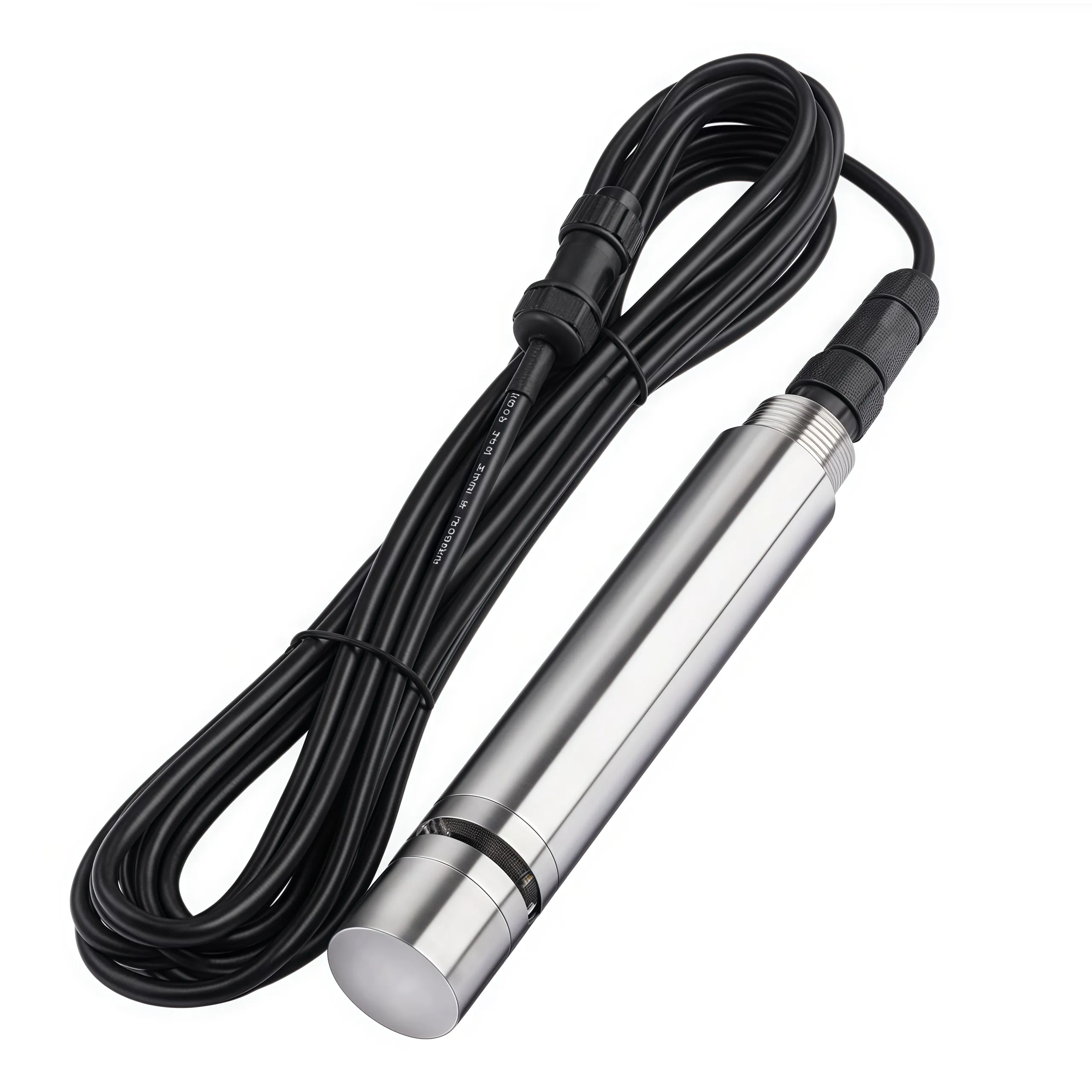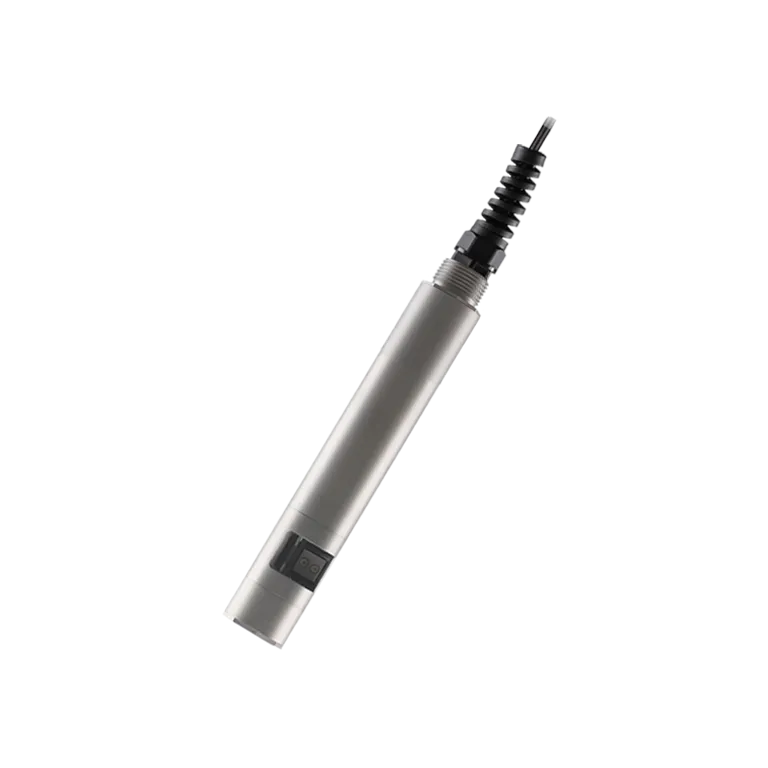



Model NO.:COD sensor
Communication method: RS485(Modbus RTU)
Measurement range:≤500mg/L、≤500NTU
Measurement precision:≤±5%
Measurement principle:UV254
Voltage:DC12V~DC24V
Protection class:IP68




Model NO.:COD sensor
Communication method: RS485(Modbus RTU)
Measurement range:≤500mg/L、≤500NTU
Measurement precision:≤±5%
Measurement principle:UV254
Voltage:DC12V~DC24V
Protection class:IP68
1.Product Introductions
The COD Sensor is a high-performance digital sensor designed for accurate and continuous monitoring of Chemical Oxygen Demand (COD) in water environments.
Constructed with a corrosion-resistant housing and rated IP68 for full waterproof protection, the sensor is suitable for long-term deployment in harsh environments such as industrial wastewater, surface water, and sewage treatment systems.
A built-in self-cleaning brush automatically removes fouling and sediment from the optical surface, maintaining consistent measurement performance and reducing maintenance frequency.
It features an RS485 communication interface with a standard Modbus protocol, ensuring seamless system integration and remote data transmission.
Equipped with a long-life UV LED light source and dual-beam optical path design, the sensor delivers high precision, long-term stability, and resistance to interference from turbidity and suspended solids.
2. Operation Principle
The UV254 absorption method determines COD concentration by measuring the ultraviolet light absorption characteristics of organic compounds in a water sample.
When UV light with a specific wavelength of 254 nm passes through the water, organic matter absorbs part of the light.
This method offers rapid, reagent-free, and continuous online monitoring, making it ideal for smart water quality management applications.
According to the Lambert–Beer Law, the absorbance is directly proportional to the concentration of organic substances in the sample.
By analyzing this absorbance, the sensor calculates the COD value—an indicator of the amount of oxidizable organic matter present in the water.
3. Electric Connection
The cable is a 4-core twisted-pair shielded wire with the following pinout:
Red wire: Power supply (12–24 VDC)
Black wire: Ground (GND)
Blue wire: 485A
White wire: 485B
Before powering the device, always verify the wiring sequence to prevent damage from incorrect connections.
Since the cables may be submerged or exposed to humid environments, they must feature corrosion-resistant insulation, and all connection points should be waterproof-sealed to ensure long-term operational reliability.
4. Installation Instructions
4.1 Installation Precautions
Avoid direct exposure to sunlight, which may affect UV readings.
Do not touch the optical measurement window with bare hands to prevent contamination.
Ensure the sensor surface is free of air bubbles during measurement and calibration for accurate results.
Prevent mechanical stress or impact (e.g., pressure, scratches) on the sensor body during installation or maintenance.
1. Features a corrosion-resistant titanium alloy housing
2. NPT 3/4 threaded interface for easy installation
3. It employs dual-beam measurement technology to simultaneously monitor parameters such as COD and turbidity
4. Operating without chemical reagents, it ensures rapid measurement, no secondary pollution
5. Equipped with a program-controlled self-cleaning function, it effectively prevents debris sedimentation and bubble adhesion on the measurement interface
6. It supports plug-and-play operation with built-in calibration record storage, eliminating the need for initial calibration upon first use

